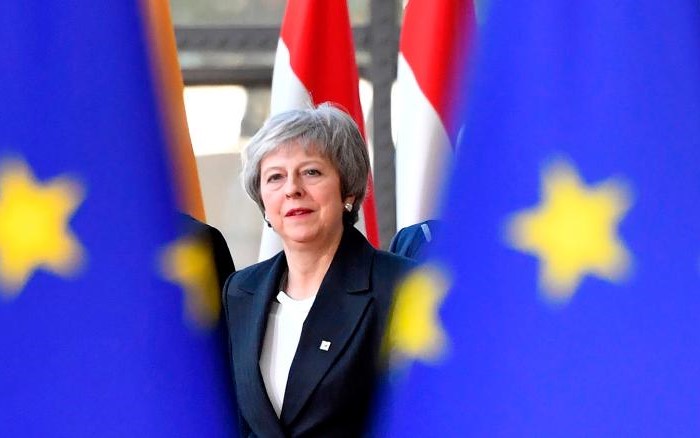UK readies for “Hard” Brexit
December 20, 2018 | Expert Insights

The UK cabinet has given the go-ahead for all of the UK’s no-deal Brexit planning to be implemented “in full” as the likelihood of dropping out of the EU without any agreement increases.
Background
On June 23rd, 2016, Britain narrowly voted to leave the European Union, stunning Europe and the world in general. The EU employs a set of policies for its 28-member states that aim to ensure the free movement of people, goods and trade among other services. Britain is deeply intertwined with the workings of the EU especially with regard to trade.
PM Theresa May’s leadership in the negotiations has been heavily criticised. She has been unable to form a consensus within the Parliament, or even her own party, for the course of Brexit. Her “directionless” leadership has not convinced most of her peers in Westminster and she was challenged by a no-confidence motion in early December 2018, which she narrowly won.
Despite her best efforts, the British parliament is not accepting the proposed Brexit agreement. Irrespective of whether they arrive on a deal or not, the UK is officially set to leave in March 2019.
Analysis
The Prime Minister’s office has said the government’s priority is still to secure a deal, but that it had a duty to plan for every outcome and would now make a series of no-deal announcements in coming days.
Officials will now seek to communicate with six million British businesses, calling on them to enact their own contingency plans, and with private citizens, on actions, they should take. Whitehall officials will also implement proposals already publicised like those designed to ensure vital food and medical supplies do not run out.
However, the fault lines running through the cabinet also became more defined with one senior minister said to have branded the idea of a no-deal Brexit a “unicorn” that Ms May’s top team should seek to “slay”, while a disagreement also broke out over whether so-called “indicative votes” would be needed to work out what approach can pass through parliament.
Some 3,500 troops will also be on standby to help deal with the impact of a no-deal Brexit if needed.
It comes days after Ms May returned from a European Council summit in Brussels, where she failed to secure enough assurances to make her proposed withdrawal deal viable and with her plans still looking like they will be defeated when they are put to a Commons vote in the new year.
Announcing the plans to step up no-deal preparations, Theresa May’s official spokesman said: “Cabinet agreed that with just over three months until we exit from the European Union, we have now reached the point where we need to ramp up these preparations.
“This means we will now set in motion the remaining elements of our no-deal plans.” He went on: “We have no deal plans and we will implement them in full.”
There was a clear warning to MPs in both the prime minister’s party and those sitting on opposition benches, that the best way of mitigating the chances of no deal is to back Ms May’s proposals when they are voted upon on January 14, 2019.
The government will also make available a 100-page “partnership pack” for all of the UK’s firms, setting out measures that should be taken in relation to customs, VAT and regulatory changes.
Ministers have already announced plans to stockpile food and medicines, chartering ferries to bring in extra supplies and providing extra resources for border agencies. Downing Street said that advice on no-deal preparations will also be going out to households by various channels over the coming weeks.
The Treasury will supply an additional £2bn on top of the £2bn already provided, with the Home Office receiving £500m for border security and handling the settlement scheme for EU nationals who want to remain in the country.
Assessment
Our assessment is that the EU is not willing to renegotiate on the proposed exit deal as EU countries stand to gain from it more than the UK. We believe that PM May is now fighting not only for a fair Brexit deal but also for her own political survival. We also feel that the rising disagreements within the Conservative Party may lead to a new Brexit Referendum, an idea which is supported by most members of the House of Commons.
Read more:








Comments